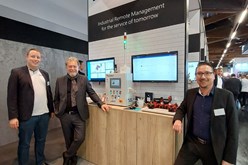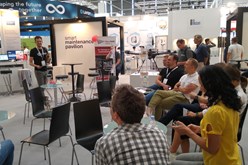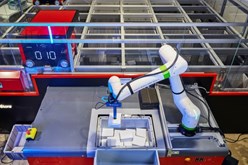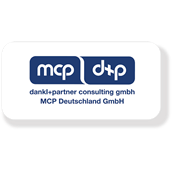Asset management as a driver for sustainability
Sustainability in maintenance & asset management is becoming increasingly important. The demands for sustainability are increasingly becoming the “driver” for goals, objectives and developments. In addition, sustainability is also an absolute image factor for companies, which makes the integration of sustainability in maintenance and asset management a strategic task.
As part of the maintenance conference , from December 5th to 6th, 2023 in Nuremberg, Andreas Dankl will give his lecture on the topic of ' Plant management as a driver for eco-efficiency .' hold.
In advance of the event there was an interview with the organizers of IFC Ebert and Andreas Dankl.
Maintenance meets energy efficiency
Sustainability – trend or long-running favorite?
A. Dankl: In the maintenance world we have been encountering the different aspects of sustainability for years. These include, among other things, aspects such as resource efficiency, life cycle considerations, emissions reduction, waste and disposal management, legal requirements and standards as well as image and customer requirements.
It is very obvious when it comes to the use of resources. For years, attention has been paid to better environmental compatibility, longer service life and performance. A longer service life of the machines always means sustainable use of the machines and facilities. This includes
also that the systems are not simply disposed of at the end of their service life, but individual parts that are still in good condition are reused or sold. The maintenance world has recognized that sustainability offers both environmental and economic benefits.
Many companies are investing in green technologies to introduce more energy-efficient processes, using data analytics to carry out preventative maintenance and relying on environmentally friendly materials and disposal methods. This allows them to act more economically and ecologically responsibly in the long term.
In focus: professional machine and system management
A. Dankl: The significance is very significant! It includes, among other things, the aspects of raw materials and energy consumption, the optimization of operational processes, life cycle management and the integration of renewable energies. Intelligent plant management systems can, for example, monitor and analyze the raw material and energy consumption of plants. This identifies waste and this data serves as the basis for optimizing the operating parameters. Implementing energy efficient technologies can help companies reduce their consumption and reduce their environmental impact.
What is interesting is the fundamentally existing symbiotic connection between system management and eco-efficiency, even if this is only implemented to a limited extent in practice. But when comparing the definitions, goals and benefit aspects, the connection between these two areas of responsibility is obvious. Before asset management can act as a driver of eco-efficiency, the question naturally arises as to the intensity with which the tasks of asset management are currently established in companies, either as an independent function (e.g. asset manager) or as defined tasks in the existing functions in production/operation , maintenance and engineering are assigned.
“Green” asset management = “intelligent” asset management
A. Dankl: In general, to optimize operations, it is helpful to accelerate maintenance planning, route optimization for maintenance teams, inventory management and improving communication and coordination between different departments.
Managing the entire life cycle of assets, including planning, procurement, commissioning, maintenance and disposal through central management of information and documentation can extend the life of assets and thereby help make more environmentally friendly decisions.
Integrating renewable energies into the operating process can also increase the proportion of environmentally friendly energy, reduce the CO2 footprint and support companies in switching to sustainable energy sources.
Through intelligent asset management, companies can not only increase operational efficiency and reduce costs, but also achieve their sustainability goals. It enables data-based decision-making, preventative maintenance and a holistic view of the asset lifecycle, ultimately leading to greener and more sustainable operations.







.jpg?w=172&h=172&mode=crop)




.png)